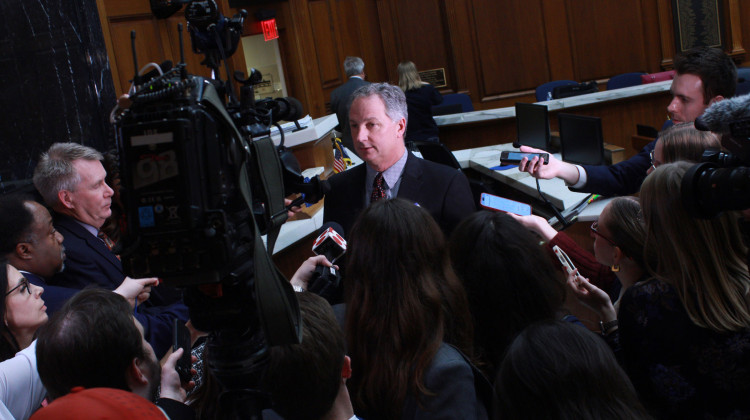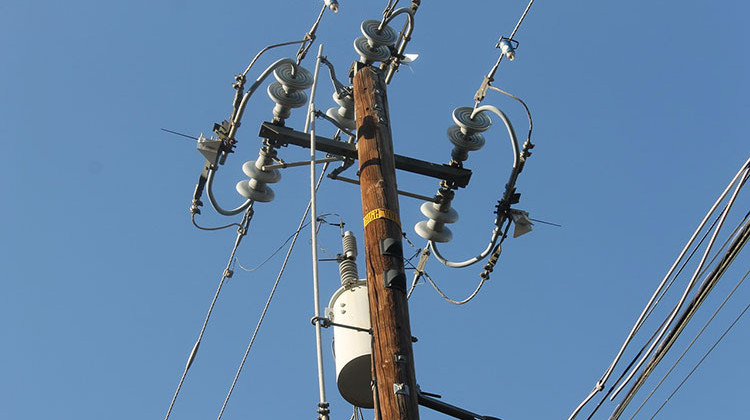
Eli Lilly makes injectable medical devices that could contain PFAS. The Indiana Manufacturers Association said, right now, there aren't alternatives for making devices like these.
Lauren Chapman/IPB NewsIndiana manufacturers want to continue to use certain types of toxic PFAS. A state House bill, HB 1399, aims to change the definition of PFAS under Indiana law to exclude the specific chemicals they want to use.
Among other things, exposure to the chemicals has been linked to kidney cancer, problems with the immune system, and developmental issues in children. Some states have moved to ban PFAS.
While no such law has been proposed in Indiana, Andrianna Moehle with the Indiana Manufacturers Association said Indiana companies want regulatory certainty.
“For example, PFAS are commonly used in medical devices such as foil in large equipment like MRI, CT, and mammography machines and devices that deliver injectable medicines. There are no commercially available alternatives to these that these industries use today,” she said.
The IMA and the industry group the American Chemistry Council said the types of PFAS used to make these products are safer than the two main chemicals the federal government is trying to limit. But Marta Venier, an Indiana University professor who studies PFAS, said once they’re in the environment, these chemicals can break down into more dangerous ones.
Join the conversation and sign up for the Indiana Two-Way. Text "Indiana" to 765-275-1120. Your comments and questions in response to our weekly text help us find the answers you need on statewide issues, including our project Civically, Indiana and our 2024 legislative bill tracker.
University of Notre Dame professor Graham Peaslee said we’re discovering new toxic effects of PFAS all the time and these chemicals will far outlive us all.
“The PFAS that we have released for the last 60 years — the chemical companies told us it was safe, they aren’t — has been into the water and has been into our bodies. Everybody in this room has PFAS, the man-made chemical, in their blood. Congratulations,” he said.
Rather than changing a scientific definition, opponents of the bill say Indiana should instead make exceptions for PFAS in essential uses like medical devices.
The bill passed out of committee and now moves to the full House for consideration.
Rebecca is our energy and environment reporter. Contact her at rthiele@iu.edu or follow her on Twitter at @beckythiele.
 DONATE
DONATE








 Support WFYI. We can't do it without you.
Support WFYI. We can't do it without you.